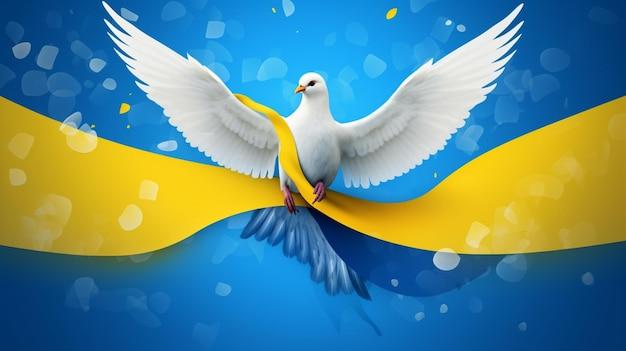Are you a fan of rock music from the 1990s? If so, there’s a good chance you’ve heard of the band Alice in Chains and their hit song “Rooster.” This powerful anthem, released in 1992, quickly became a staple of the era’s grunge movement. However, there’s more to “Rooster” than just its catchy melodies and gritty sound.
In this blog post, we’ll dive deep into the meaning behind “Rooster” by Alice in Chains, examining its connection to war and the subtle anti-war message it carries. But before we delve into the nuances of the song, let’s first explore some questions that may have crossed your mind: What is the Rooster song actually called? Where does the word “rooster” originate from? And is Alice in Chains a grunge band? Stay with us as we unravel the captivating story behind this iconic track.
So grab your headphones, set the volume to eleven, and let’s embark on a journey through the fascinating world of “Rooster” by Alice in Chains.

The Deeper Meaning of “Rooster”: Analyzing the Anti-War Sentiment
In Search of Protest: Unpacking the Themes of “Rooster”
As we dig deep into rock music history, we often stumble upon songs that carry profound meanings beneath their catchy melodies. One such example is Alice in Chains’ iconic hit, “Rooster.” While many listeners enjoy its powerful guitar riffs and haunting vocals, the question arises: is “Rooster” truly an anti-war song?
A Surprising Revelation: The Origins of “Rooster”
To understand the meaning behind “Rooster,” we need to delve into the context within which it was written. The song, penned by Alice in Chains guitarist Jerry Cantrell, was inspired by his father’s experiences as a U.S. Army veteran in the Vietnam War. Nicknamed “Rooster” during his time of service, Cantrell’s father became the central figure of the song and represented the soldiers who endured the horrors of war.
Painting a Vivid Picture: The Lyrics Unveiled
Through poignant lyrics and evocative storytelling, “Rooster” explores the devastating aftermath of war. In this masterpiece of musical artistry, Cantrell beautifully portrays the struggles faced by soldiers and the impact it has on their lives. Veiled in metaphors and poignant imagery, the song creates a captivating narrative that transcends its time and resonates with audiences even today.
A Cry for Peace: The Anti-War Message
While “Rooster” doesn’t directly chant slogans or wave protest signs, its anti-war sentiment subtly permeates throughout the song. By immortalizing his father’s experiences and sharing a part of the collective war trauma, Cantrell invites listeners to confront the harsh realities of armed conflict and contemplate the devastating consequences it brings.
The Power of Emotional Connection: How “Rooster” Strikes a Chord
What sets “Rooster” apart in the realm of anti-war songs is its ability to connect with people on an emotional level. The raw vulnerability in Cantrell’s voice and the melancholic melody create an immersive experience that evokes empathy and compassion. Through this emotional connection, “Rooster” becomes a catalyst for dialogue and introspection regarding the futility of war and the lasting scars it leaves behind.
Uniting Generations: “Rooster” and its Enduring Relevance
Despite being released in the early ’90s, “Rooster” has a timeless quality that remains relevant today. Its message serves as a timeless reminder of the human cost of warfare and the importance of seeking peaceful solutions to conflicts. By encapsulating the universal experience of war through the lens of one soldier’s personal journey, “Rooster” transcends generational boundaries and continues to resonate with listeners of all ages.
Conclusion: “Rooster” as an Anti-War Anthem
While “Rooster” might not fit the conventional mold of protest anthems, its anti-war sentiment flows through every note and lyric. By immersing listeners in a tale of personal struggle and sacrifice, Alice in Chains created a powerful piece that challenges society’s perspective on armed conflict. As we listen to “Rooster” today, we honor not only the soldiers who endured the Vietnam War but also reflect on our shared responsibility to strive for peace in an ever-changing world.

FAQ: Is “Rooster” an Anti-War Song?
In the world of music, there are certain songs that transcend time and leave a lasting impact on listeners. “Rooster” by Alice in Chains is one such song. With its powerful lyrics and haunting melody, it has captured the hearts of many. But is “Rooster” an anti-war song? In this FAQ-style subsection, we will delve into the various aspects of the song, from its origins to its meaning, and finally answer this burning question. So, let’s get started!
What is the Song “Rooster” Called
The song is simply called “Rooster.” The title might seem a bit unusual, but it holds significance to the band’s guitarist, Jerry Cantrell Sr.
What is the Meaning Behind “Rooster” by Alice in Chains
“Rooster” is a deeply personal and introspective song. It was written by Jerry Cantrell as a tribute to his father, who served in the Vietnam War. The song reflects the experiences of Cantrell Sr., also known as the Rooster, and the impact the war had on him. It explores themes of struggle, survival, and the scars that war leaves behind.
Where is Jerry Cantrell Sr. From
Jerry Cantrell Sr. hails from Tacoma, Washington, USA.
What Happened to Layne Staley
Layne Staley, the lead vocalist of Alice in Chains, tragically succumbed to his personal struggles and passed away on April 5, 2002. His incredible contributions to the band and his unique voice continue to be celebrated by fans worldwide.
Is a Rooster Male or Female
While both male and female chickens are commonly referred to as chickens, a rooster specifically refers to a male chicken. They are known for their distinctive vibrant plumage and crowing.
Where Does the Word “Rooster” Originate From
The word “rooster” originates from the Old English word “rōstere,” which means “rooster” or “cock.” It has been used to refer to male chickens for centuries.
What is the Symbolic Meaning of a Rooster
The rooster holds symbolic meaning in various cultures. It is often associated with characteristics such as strength, courage, and reliability. In some traditions, it is considered a symbol of good luck and protection against evil spirits.
What Does “Rooster” Mean in Slang
In slang, the term “rooster” can be used to refer to a person who is confident, bold, and assertive. It can also be used to describe someone who enjoys being the center of attention.
Why Do Roosters Crow
Roosters crow as a way to establish their territory and communicate with other chickens. It is also believed to be a natural instinct to signal the break of dawn and establish their dominance within the flock.
Is Alice in Chains Considered Grunge
Yes, Alice in Chains is widely regarded as one of the pioneering bands of the grunge genre. Their unique blend of heavy metal, alternative rock, and introspective lyrics captured the essence of the grunge movement that emerged from Seattle in the late 1980s and early 1990s.
What Animal is a Rooster
A rooster, as mentioned earlier, is a male chicken. It belongs to the Gallus gallus domesticus species and is commonly found on farms and in backyard settings.
What is a Rooster’s Strongest Sense
A rooster’s strongest sense is its eyesight. They have keen vision, allowing them to detect predators from afar and maintain awareness of their surroundings. This heightened visual acuity is a valuable survival trait for roosters.
Is “Rooster” by Alice in Chains Anti-War
“Rooster” by Alice in Chains does not explicitly take an anti-war stance. Instead, it serves as a poignant reflection on the individual experiences and scars left by war. While it shines a light on the emotional toll of combat, it doesn’t aim to convey a political message or advocate against war.
What Does “Rooster” Mean in the Military
In military jargon, “rooster” can be used to refer to an individual or unit that is confident, proud, and resilient. This terminology draws inspiration from the rooster’s symbolic traits of strength and courage.
Was Alice in Chains in the Military
No, Alice in Chains was not a military band. The members did not have a military background, but Jerry Cantrell Sr.’s experiences as a Vietnam War veteran influenced the creation of the song “Rooster.”
“Rooster” by Alice in Chains remains a powerful and introspective song that resonates with listeners. While it doesn’t explicitly advocate against war, it highlights the individual struggles and scars left by conflict. Understanding the personal connection to Jerry Cantrell Sr.’s father adds depth to the song’s meaning. Whether you listen to “Rooster” for its melodic brilliance or connect with its heartfelt lyrics, the song is undoubtedly a timeless gem in the music landscape.
So, when you find yourself humming along to the haunting notes of “Rooster,” remember the story behind the song and the powerful impact it continues to have.